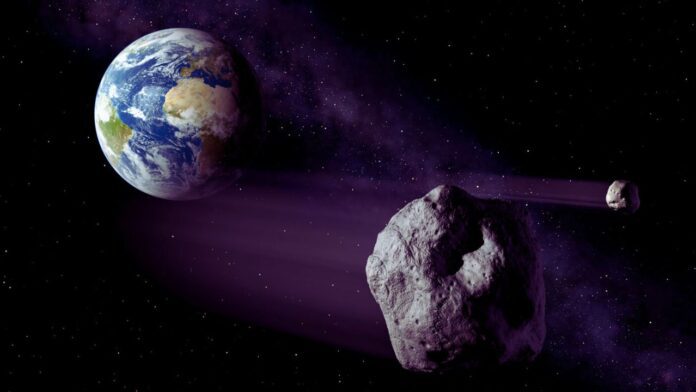NASA recently made an exciting announcement that an asteroid sample collected by its OSIRIS-REx spacecraft could help unravel the mysteries surrounding the origins of life on Earth. This asteroid, named Bennu, contains substantial amounts of carbon and water – molecular building blocks critical for the emergence of life billions of years ago.
According to NASA Administrator Bill Nelson, this is the largest sample of carbon-rich material ever retrieved from an ancient asteroid and brought back to Earth. Scientists believe Bennu and similar asteroids may have delivered the organic compounds needed for life to begin on our planet after it formed. The materials collected from Bennu provide an extraordinary time capsule and a tantalizing clue to how life first arose on Earth under the right chemical conditions.Additionally, you can also read about- NASA Mission to Metal World Could Help Us Find New Resources for Space Exploration
Mission to Explore Bennu’s Secrets Took Many Years, But Yielded Scientific Treasure
The ambitious OSIRIS-REx mission first launched in 2016, beginning a multi-year journey to near-Earth asteroid Bennu located over 200 million miles away. After arriving and extensively surveying Bennu’s rocky, acorn-shaped surface, the spacecraft executed a daring maneuver to collect samples from the asteroid’s surface in 2020. It then began its long return voyage back to Earth, with the invaluable extraterrestrial cargo in tow.
Last month, after traveling through space for over 2 years, OSIRIS-REx finally landed in the Utah desert, delivering its historic samples to eager scientists. While initial inspections of the material have commenced, the real scientific discoveries about Bennu’s origins and composition await deeper study.If you want you can also read- NASA Invests in Astronaut Health for Long Missions
Asteroid Research is Key to Unlocking the Greater Mysteries of the Cosmos
By using advanced laboratory techniques to analyze the chemical, mineralogical and isotopic properties of the Bennu samples, researchers hope to gain invaluable insights into the building blocks of life and how our planet and solar system formed over 4.5 billion years ago. Each new asteroid mission brings us one step closer to understanding the origins of life itself and our place in the universe.
As NASA plans future trips to uncover the secrets of asteroids like Apophis, they are steadily unraveling the mysteries surrounding the dawn of our solar system. Asteroid research allows us to glimpse the raw materials that may have seeded Earth with the precursors to life as we know it.
You May Find Interest: Rogue Scientist: NASA Found Life on Mars in 1973 and Killed Them




![Ranking US States: From Healthiest to Least Healthy [2024 Guide] Health Rankings US States](https://articleify.com/wp-content/uploads/2024/03/Health-Rankings-US-States-218x150.jpg)









![Technical Aspects of 844 Area Code in 2024 [Detail Guide] 844 Area Code](https://articleify.com/wp-content/uploads/2024/01/844-Area-Code-150x150.jpg)














